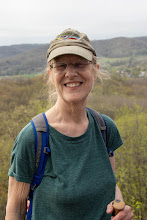 |
| Image |
I've been thinking alot about the pressure we put on
ourselves in our youth library world. We want to be good at our job and for our
community but there is also a whole world out there in the profession that
sings a siren song of opportunity and over-commitment. Striking a work balance,
a professional balance and a personal balance is hard because of All.The
Things. that call and call and call.
Two recent blog posts
brought this into particular focus. The first was this one at House at Katie's
Corner. Katie talks about those many things that pulled at her and
drove her to exhaustion. In the end, she reminds herself why she is a
librarian : "It’s not to have the best blog or the latest
gadget or the best-written article in Library Journal [although
these things are fabulous]. I’m really doing my job to serve my people, my
community, my kids. And if I focus so much on myself and how I stack up next to
others, I’m not going to do the best job for them."
The second is the first of three posts that Mel is doing at Mel's Desk about the nuances of no. Mel beautifully explores the difficulties and satisfactions of working towards balance and the power that "no" has in reaching towards that goal. She shares her journey of getting out of earshot of the siren song. I can hardly wait to read the next posts coming out on this.
One of my first library directors taught me something valuable as a young librarian that has helped me work through this struggle in my own practice. He pointed out that there was time for everything in my career. When I was asked to serve on an award committee early in my career, he said no. I was burning the candle at both ends with some amazing work projects and partnerships and he pointed out that the opportunity would come again. At the time, I was really angry with him. This was a once-in-a-lifetime opportunity! He was ruining everything! I could do it! I had the energy!
But time proved him right. The opportunity not only came again but came at a better time - a time when I could commit energy and thought to it without shorting my work at the library. And it came more than once. He helped me see that in the course of a career, we have many opportunities to do meaningful work professionally without jumping on the train early or taking time away from work or family.
I also learned as I went along that stress is not my favorite place to be. It helped me create balance and really pursue projects outside of work that made a difference without killing me with overwork. I say yes to very few outside professional commitments/projects at any one time (storytelling, consulting, professional association work, teaching, writing) since it has to mostly fit in my non-work time. If I take on too much, my blog goes quiet. I am out of balance.
How do I juggle all the things to get to balance? My first - and always - bond and commitment is to the people I serve and who pay my salary. My best energy, my best ideas and my time go here first. Next is my family. From there, I work to serve and advance our profession - taking on commitments that don't overwhelm me or crowd into my workday. If I don't serve my community and my job, everything else I do is really meaningless and false. This - this everyday and day-in-and-day-out work- is my center.
Because I am closing in fast on four decades as a children's librarian I have truly learned that a career is a marathon and not a sprint. The sweetness of those "extra" things that I have done in the past ten years is better than many things I did early on. And there is room and time for everyone to get to that sweet place. Time brings all the things our way. We just need to be patient and realize that the journey is just as good as the destination. Give yourself time and space to grow and balance. The rest of All.The.Things. will come in their own good time.



